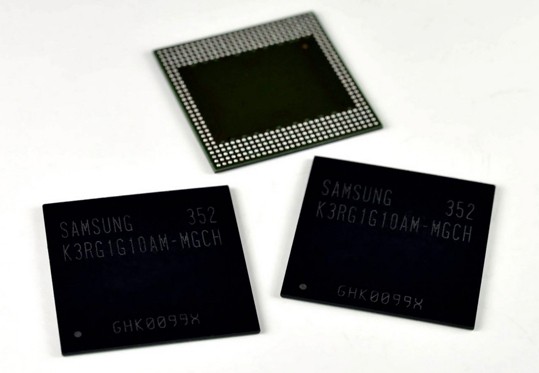Samsung on Monday announced a new memory chip design that will ultimately allow mobile devices like smartphones and tablets to support 4GB of RAM. At current, most smartphones support a maximum of 2GB of system memory although the company’s own Galaxy Note 3 ships with 3GB of RAM.
The Korean tech giant said the new 8 Gigabit LPDDR4 (low power double data rate) DRAM will result in faster and more responsive applications. Specifically, it can provide 50 percent higher performance compared to current LPDDR3 offerings.

It’ll also facilitate advanced features such as higher resolution displays (up to 4K resolution), all while consuming 40 percent less power than current memory chipsets. The new chips are built using 20-nanometer class technology meaning a process somewhere between 20- and 30-nanometers.
4GB of RAM in a smartphone or tablet is clearly overkill at this point but much like Apple did with their 64-bit processor, Samsung is looking to the future with the chip. Applications of the future will no doubt consume more processor cycles and subsequently, more memory.
The chip will launch next year, Samsung said, and will be used in large screen smartphones, tablets and ultra-slim notebooks from them as well as other manufacturers. It’s unclear, however, whether the chip will arrive in time to make it into Samsung’s next wave of mobile devices but considering the Note 3 already has 3GB of RAM, it wouldn’t be a stretch to see the Galaxy S5 or the Note 4 show up with the new chipset.